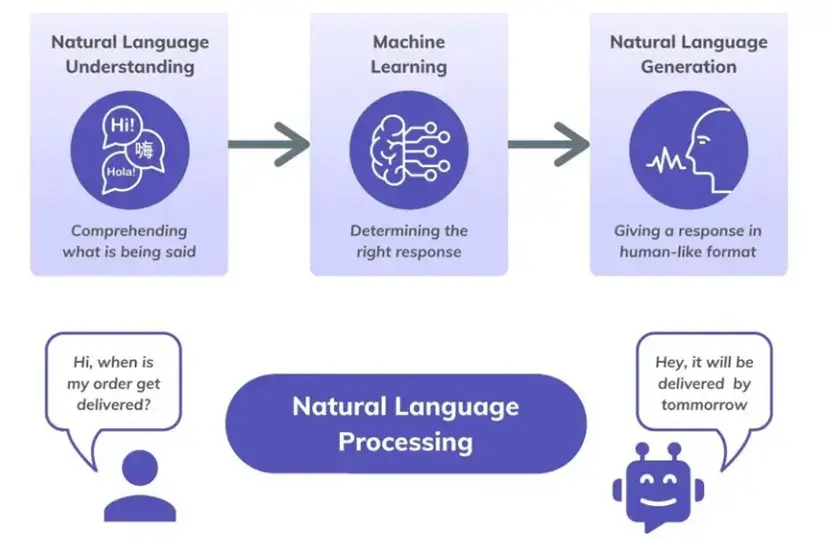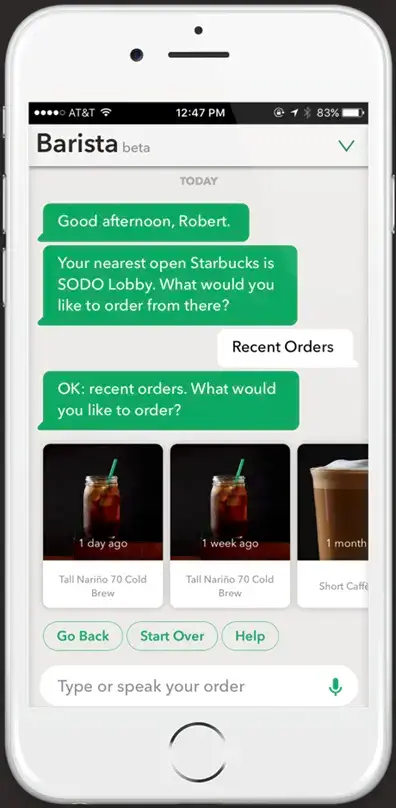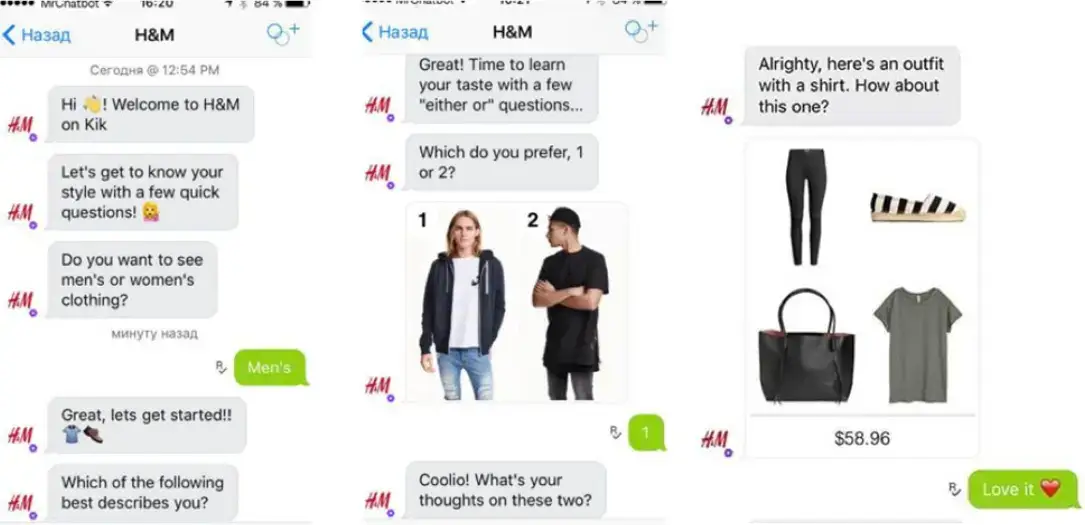Attracting new customers to try your product or service is crucial to accelerating your business growth. Meanwhile, retaining and nurturing existing customers is the key to ensuring sustained progress.
Statistics reveal that 93% of your customers will certainly return for another purchase with your company if their previous experience was a pleasurable one.
Article Shortcuts:

Custom image created in Canva
Fostering customer loyalty is crucial. It is a foundational pillar supporting your company’s long-term growth and profitability.
With conversational AI, boosting customer loyalty is easier than ever.
The innovative technology is reshaping customer interactions and personalizing experiences, thus strengthening the bond between brands and their valued patrons.
Today, we will delve into the future of AI in customer service and how it can increase customer loyalty.
Why is Customer Loyalty So Important?
Customer loyalty goes beyond merely ensuring customers are satisfied with your business offerings. It involves building solid and long-term connections between your brand and its customers.
Loyal customers not only make recurrent purchases from your company but also become ardent brand advocates.
They spread positive word-of-mouth that improves a company’s reputation.
Additionally, acquiring new customers is often much more costly than retaining the existing ones.
Studies suggest that acquiring a new customer can cost five to seven times more than retaining an old customer. It makes customer loyalty a cost-effective strategy.
What is Conversational AI?
Conversational AI is a form of artificial intelligence that can simulate natural conversations with humans.
It leverages natural language processing (NLP), a field of AI that enables computers to analyze the meaning of text and speech and generate relevant and appropriate responses.

Image: Source
Conversational AI technology has found application in various domains, including customer services. Many businesses are creating chatbots and virtual assistants that use conversational AI to streamline customer interaction.
The technology enables companies to engage with their customers on a much more personalized level.
AI-powered chatbots and assistants can offer personalized recommendations that enhance customer experience and foster loyalty. Let’s understand this in detail in the next segment.
Role of Conversational AI in Enhancing Customer Loyalty
The role of conversational AI in improving customer loyalty is crucial and multi-faceted. More so, live chat, a popular channel for communication-powered conversational AI, is a prime example of how technology is transforming customer service.
AI-powered bots and virtual assistants help to strengthen the connection between customers and brands. Here’s how it works.
- Enhanced Customer Experience (CX): Conversational AI ensures a natural, human-like interaction that resonates well with the customers.
By understanding customers' pain points and requirements, AI helps nurture a deeper bond, leading to a good customer experience.
An outstanding experience can set your business apart from your peers and increase brand advocacy. There are many AI marketing tools available. Use them to strengthen your bond with your customers.
- Personalized interactions: An AI customer service chatbot analyzes customer data and behavior. Consequently, it can provide tailored solutions and recommendations, addressing the precise needs of each customer.
It gives a personal touch and improves the customers’ journey with the brand.
- Round-the-clock availability: AI chatbot operates round-the-clock. It means that customers can get their queries resolved at any time, regardless of time zones.
This 24/7 accessibility drastically improves customer satisfaction and loyalty. Customers feel valued as they don’t have to deal with delayed responses and long waiting hours.
- Improved customer insights: Conversational AI systems collect valuable customer insights by analyzing customer interactions.
This vital data helps to identify customer behavior, preferences, pain points, and more. Based on these insights, businesses can improve their offerings and enhance, resulting in customer satisfaction.
- Omni-channel support: Conversational AI deployed across various communication channels, such as messaging apps, websites, and social media, offer omnichannel support.
This consistent presence across channels ensures customer convenience as they can interact with the brand in their preferred way.
- Efficient problem resolution: AI-powered chatbots handle customer issues quickly and effectively.
They can easily look into common issues such as account management, order tracking, etc. It leads to quick problem resolution and a positive customer experience.
Conversational AI Examples in Customer Service
As per statistics, between 2020 and 2025, the conversational AI market is likely to grow by 22%, reaching $14 billion.
Interestingly, customer service is the most planned aspect, and the use case of conversational AI technology for brands is customer service.
Improving customer service is an excellent way to boost engagement and loyalty.
Let’s look at some AI customer experience examples to help you identify how to use this technology to increase customer loyalty.
1. Chatbots
Chatbots are among the most common and efficient uses of conversational AI. They are computer programs designed to engage in text-based conversations with customers and provide automated responses to user input.
Chatbots are highly effective as they can address queries, offer personalized recommendations, and even help complete purchases.
According to a report by HubSpot, 47% of customers would buy items via a chatbot.
Additionally, chatbots enable brands to be available round-the-clock. They offer quick and timely assistance that boosts every customer’s experience with the brand.
Sephora, the famous beauty retailer, demonstrates one impressive example of a conversational AI chatbot. The brand uses conversational AI by offering the Sephora Virtual Artist chatbot.
It allows customers to explore new products, try different makeup looks, benefit from easy-to-follow tutorials, and much more. It enhances the customer’s journey and builds brand loyalty.
For businesses looking for a character AI alternative, platforms like Talkie.ai offer excellent AI-powered chatbot solutions that can be tailored to various industries and use cases."
AI chatbots are involved in the market for improving customer support. Many social media platforms use chatbots like Botsify for WhatsApp.
AI chatbots interact with users to answer their queries and generate more conversation.

Image: Source
2. Voice assistants
Voice assistants are like virtual agents that can drastically streamline customer service. They can talk to customers over the phone or through smart speakers.
Voice assistants use speech-to-text technology to process user input and address queries. It also leverages natural language processing (NLP) abilities to identify customer intent and generate targeted responses.
Starbucks Voice Barista is one incredible example of an AI-powered voice assistant.
Starbucks has implemented a voice-enabled ordering system that allows customers to place their coffee orders using voice commands. The system integrates with the Starbucks mobile app and Amazon’s Alexa.
The assistant enables customers to customize their orders fully.
Additionally, the system remembers each customer’s favorite orders and customization preferences, ensuring a seamless and brilliant customer experience.

Image: Source
3. Messaging apps
Several businesses are integrating conversational AI into their dedicated messaging apps, such as implementing an iMessage chatbot, to provide customer support.
It enables customers to reach out to brands using platforms they use daily.
Thus, the strategic approach improves customer experience and support through seamless, real-time interactions.
H&M, a leading fashion retailer, has been harnessing the potential of conversational AI in customer service with their chatbot on Kik. The chatbot, 'Anna,' acts as a virtual stylist and shopping assistant, enhancing every customer’s shopping experience.
Anna offers personalized fashion recommendations and engages in natural conversations with the customers, emulating the experience of an in-store stylist. It not only boosts engagement but also ensures a pleasant shopping experience, which thereby fosters brand loyalty.

Image: Source
Conclusion
Conversational AI can revolutionize your business operations and provide several opportunities for business growth.
This technology makes it easier for brands to interact with their customers, resolve their issues, and make them feel valued.
From chatbots that provide instant responses to virtual assistants that offer personalized guidance, conversational AI is changing how brands and customers connect.
Leveraging this innovative technology is the best way to boost customer service and turn customers into loyal supporters who stick around for the long run.
Author Bio
Irov is a content marketing specialist, demand generation enthusiast, and team player currently working with 2xSaS. He helps B2B SaaS companies spread the word about their products through engaging content. When he is not working, he likes playing video games on his PS4.
Email: irov@2xsas.com


